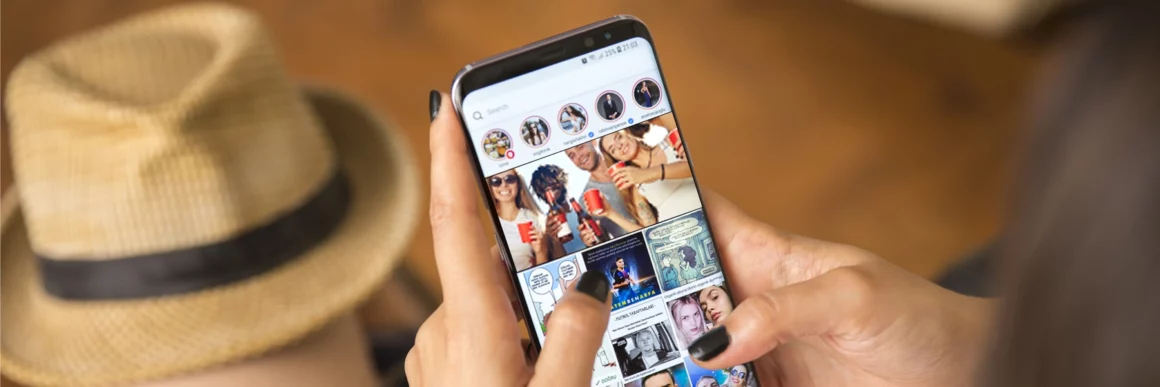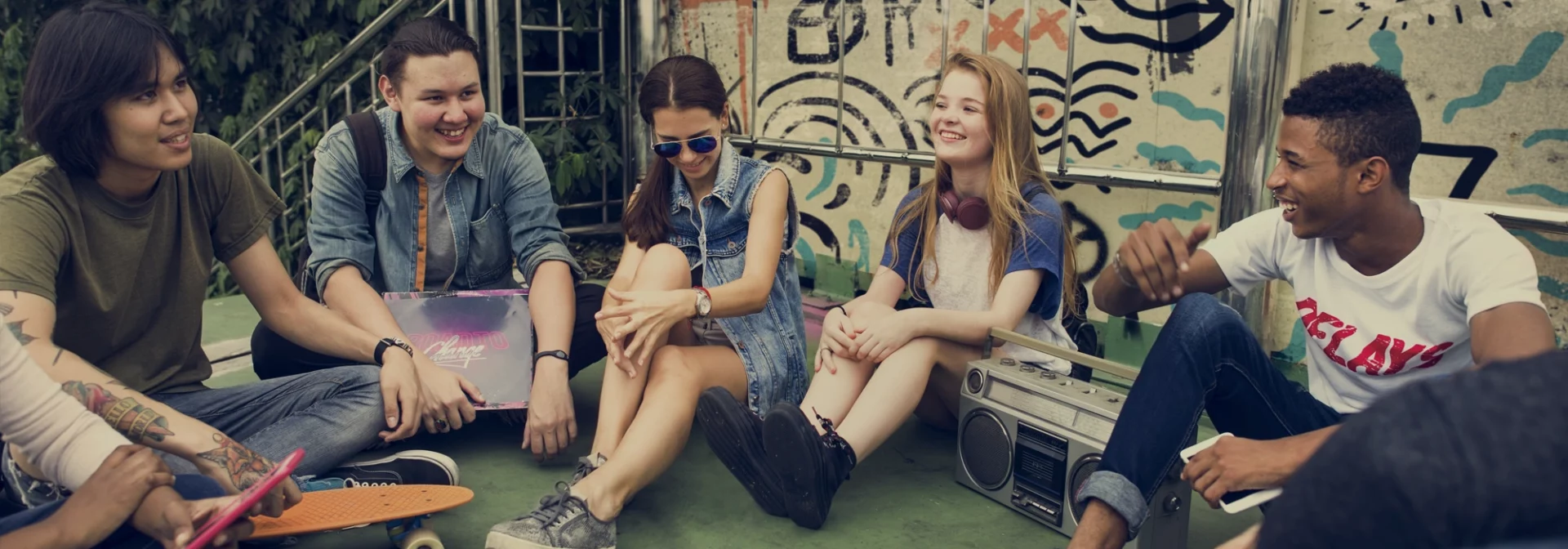Remember when our kids were young and we thought as they got older, things would be easier? In some ways, as they gain more independence it does get easier, but growing older also brings new challenges.
One such challenge is called peer pressure. When it’s negative peer pressure, it can make our gut sound out an alarm, “BEWARE!” Other times, peer pressure can be just what kids need to follow a dream they may fear facing alone.
What Is Peer Pressure?
Peer pressure is the influence from one’s peer group that can cause your tween or teen to do things that they might otherwise be resistant to do, or might not do at all.
Peer pressure can be applied slowly over time without us even realizing that it is happening. How our tween or teen feels about themselves (their self-confidence or self-esteem) can be the driving force in how they respond to pressure and/or if they are the ones who are dishing it out.
It’s during these times that you can help by providing a compass for them so they can navigate this terrain without getting lost.
Reflect on What Influenced You During Your Teenage Years
Before helping to guide them, it is beneficial to reflect on how you were influenced as a preteen and teen:
- What helped shape your identity and the choices you made?
- How and when did you experience peers negatively influencing you? What were the consequences?
- How and when did peers influence you positively and what did you gain from those experiences?
- What or who influenced you besides your friends?
We can be pressured by cultural expectations, family, peers, religion, and media. The desire to belong can be intense, and that is the danger with peer and societal pressures. Sometimes trying to belong means we ignore who we really are and what is good for us.

How Peer Pressure Affects Tweens & Teens
It’s important to note that peer pressure can affect kids in many different ways and in all areas of their lives. This pressure can be spoken, unspoken, direct, or indirect. It can also be positive or negative.
Academics and Activities
Peer pressure might cause them to push themselves too hard to over-achieve. Comparing themselves to others can cause increased anxiety and stress.
Sexual Experiences
They may try out different sexual activities before they are ready because that is what they see happening around them and feel it is a way to fit in or seek acceptance.
Their Body
Peer pressure might cause them to alter their appearance to meet or rebel against social standards. However, it is important to note that some may do this to feel more like themselves, for instance, if they feel like another gender, genderqueer, or nonbinary.
Drugs and Alcohol
Society and media have participated in depicting alcohol and drug use in adolescents as a way to “have fun” or as an “escape.” Especially since it has been presented in many places as “what teenagers do.”

When kids then see behavior like this from the media, other family members, or peers, they are more apt to experiment. The desire to fit in or impress one’s friends or peers may outweigh any fear or risk. It’s important to talk about the dangers around these substances and how they can lead into other choices that may put them at risk.
This is also when it is a good time to communicate about how you will support them to make good choices. This can include setting up code words for your young person to text you if they find themselves in a place where this behavior is happening and want to be picked up.
Dating and Relationships
Remember games like, seven minutes in heaven, spin the bottle, or playing wingperson for our friend? Games around initiating sexual activity or behavior among a group of friends or acquaintances still happen today. They just may look different. Now, in some cases, a camera could be involved when someone is told to kiss someone for fun.
Based on the need of wanting to feel included, preteens and teens can feel pressured to date and explore physically intimate acts when they are not ready to, just to fit in. Sometimes, pressure may present itself by being a part of a friend group they normally wouldn’t seek out, just because their close friend is. Keeping connections and wanting connections can drive preteens and teens to act in ways that may not be typical to their character.
These are a few examples of how peer and societal pressure show up in our lives. As caregivers, it is important to recognize our role in how we can positively influence our young people and how we can be a support system for who they truly are, even if it does not align with our vision on who and what they should become.
What to Expect Regarding Peer Pressure
Peer pressure is a topic often brought up during puberty because, as our young people grow into preteens and teens, peer pressure increases. During this time, you may observe:
- They begin to naturally take more risks, distance themselves from their caregivers, and care more about what others think of them.
- They may be more self-conscious and say things like: “What do you think they will say?”; “How does it look? Is it cool?”; “I need this — this is what everyone has.”
- They care about others’ opinions.
- They care about social media and those “likes” can become very important and all too consuming.
- They may associate with peers who are new friends or acquaintances that you are not familiar with yet.
Encourage your preteen or teen to take an objective look at what they are seeing. Have them pay attention to the behavior of their peers. Encourage them to do this for a week as a social experiment.
This can give caregivers a good chance to set aside some time to start having conversations and identify:
1. Who are their peers?
2. Who are the most influential people in their lives (positive and negative)?
3. Why are they influential in their eyes? What do they do that makes them influential?
4. Is the influence positive and/or negative?
5. How does the influence affect them? How does it make them feel?
6. Who are they as a person? What or who may have influenced them to become who they are today?

Give Them the Tools to Stand up to Peer Pressure
As a parent or caregiver, it is important to give guidance on how to stand up to peer pressure. Here are some suggestions for your preteen or teen to develop the skills and confidence to battle negative peer pressure.
Come Up With a Plan
Before attending a social event, discuss a plan of action in case they want to leave the situation. Be open and non-judgemental if they reach out for help. Your preteen or teen can have a certain phrase or word they say in person or via text that means they want you to reach out with an excuse to pick them up.
Educate Them on Trusting Their Gut
Confide in your preteen or teen that you trust in their heart and mind that they know what their values are, and they should listen to their gut instinct to guide their decisions.
Practice Saying “No”
Preteens and teens do not want to seem uncool by saying “No.” There are ways to say “No” that can provide an out while maintaining one’s confidence on the delivery. Saying “hey not now,” “I’m good,” or “I have to get up early in the morning so I will pass,” are all great alternatives to offer to your preteen or teen. There are many ways to say “No.” Find some that your preteen or teen is comfortable saying and practice them.
Make a “No Questions Asked’ Rule
Offer to ask no questions if they confide in you and reach out for you to pick them up.
Let Them Make You the “Bad Guy”
Tell your preteen or teen that they can blame you. Using phrases like, “My mom is like a hound and will smell my breath for alcohol when I get home,” or any other phrase that would take the pressure off of your adolescent.

Peer Pressure Red Flags and When to Reach Out
If you see significant behavioral changes in your young person, it is a good time to observe closely, ask questions, and get involved. Changes may include:
- Isolating themselves
- Being particularly moody
- Becoming overly interested in things they haven’t been before, or losing interest in activities that used to interest them
- Having issues with sleep
- Negative changes in grades
- Getting defensive quickly
- Loss of appetite, overeating, or changes in their eating routines
- Loss of interest or anxiety to go to school or hang out with their friends
The brains of our young people are still developing as they move through adolescence and into adulthood, especially in the areas of cause and effect and rational thinking. They often can’t see the consequences that they may face for their actions or choices. This is incredibly frustrating for us when we clearly can see and predict an outcome that may not be favorable.
Instead of judging and reacting, have some conversations with them that will prompt them to look at the big picture. Ask about their life and what is affecting them. If they don’t answer or are resistant, be observant and patient. Sometimes our young people don’t want to talk to us, but when they know we are interested in them, care for them, and refrain as best as we can from being reactionary, then they know we are a person that they can come to when they are ready to open up.
